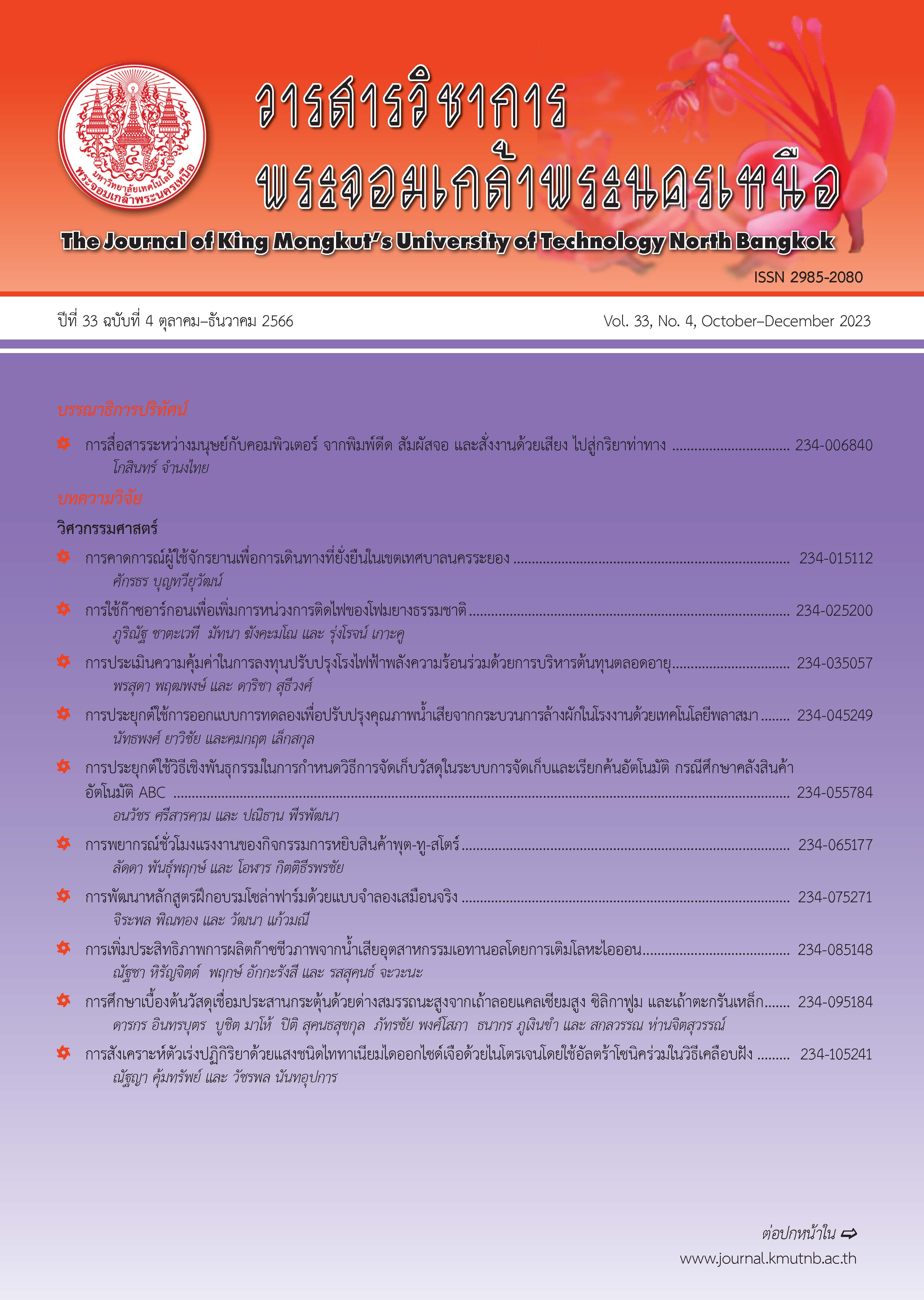The Development of Training Course of Solar Farm Using Virtual Reality
Main Article Content
Abstract
The development of a Virtual Reality training module on Solar Farm (VRSF) combines the use of virtual reality into an online training course. Trainees are thus given opportunities to experience real-world scenarios. Virtual training can reduce costs and makes training more convenient for learners. The aims of this study were: 1) to develop a Virtual Reality training module on Solar Farm (VRSF); 2) to assess the module efficiency; 3) to determine learning achievement of course participants; and 4) to evaluate participants' satisfaction with the training program. The sample group (n=50) constitute individuals, government officials, public servants and government employees of Weapon Research and Development Plant who are interested in or wish to start a solar farm business. Basic programming concepts are required for running tutorials. The research tools are VRSF training course on the website www.vr-solarfarm.com and a test to measure the learning achievement of the participants. One-group pretest-posttest design was used to evaluate the effectiveness of the intervention. The results showed that the VRSF training course is of very good quality. The course content includes a practice-oriented module for programming with an embedded system to control solar tracking. This allows the participants to gain additional knowledge and skills which they can further apply in practical contexts. The learning achievement was found to increase by more than 80% and a high degree of overall satisfaction with the VRSF online course was disclosed among the attendees.
Article Details

This work is licensed under a Creative Commons Attribution-NonCommercial-NoDerivatives 4.0 International License.
The articles published are the opinion of the author only. The author is responsible for any legal consequences. That may arise from that article.
References
Ministry of Energy. (2015, June). Thailand power development plan 2015-2036 (PDP2015). Energy Policy and Planning Office. Ministry of Energy. Bangkok, Thailand [Online]. (in Thai). Available: http://www.eppo.go.th/images/ POLICY/PDF/PDP_TH.pdf.
Kasikornbank Research. (2020, March). Business opportunities make money renewable energy. Kasikornbank SME Analysis, Bangkok, Thailand. [Online]. (in Thai). Available: https://www. kasikornbank.com/th/busin ess/sme/KSME Knowledge/article/KSMEAnalysis/Documents/ BusinessOppotunity.pdf.
I. Laoprom and W. Buathes, “Design and construct of solar power systems by solar tracking,” presented at the 3rd Kamphaeng Phet Rajabhat University National Conference, Kamphaeng Pet, Thailand, Dec. 22, 2016 (in Thai).
S. Padoongphan, “Automation control solarcell,” Princess of Narathiwat University Journal, vol. 7, no. 1, pp. 81–91, 2015 (in Thai).
Y. Chee, “Virtual reality in education: Rooting learning in experience,” in Proceedings the International Symposium on Virtual Education 2001, 2001, pp. 43–54.
G. Burdea and P. Coiffet, “Virtual reality technology,” Reviews, vol. 12, no. 6, pp. 663–664, 2003.
M. Sanders, “A rationale for new approaches to STEM education and STEM education graduate programs,” presented at the 93rd Mississippi Valley Technology Teacher Education Conference, Nashville, Davidson, Dec-Jan 2009.
V. Raghunathan, A. Kansal, J. Hsu, J. Friedman, and M. Srivastava,” Design considerations for solar energy harvesting wireless, in Proceedings IPSN 2005, 2005, pp. 457–462.
D. L. Clason and T. J. Dormody, “Analyzing data measured by individual likert-type items,” Journal of Agricultural Education, vol. 35, no. 4, pp. 31–35, 1994.
A. Yadav, D. Subedi, M. A. Lundeberg, and C. F. Bunting, “Problem-based learning: Influence on students' learning in an electrical engineering course,” Journal of Engineering Education, vol. 100, no. 2, pp. 253–280, 2011.

